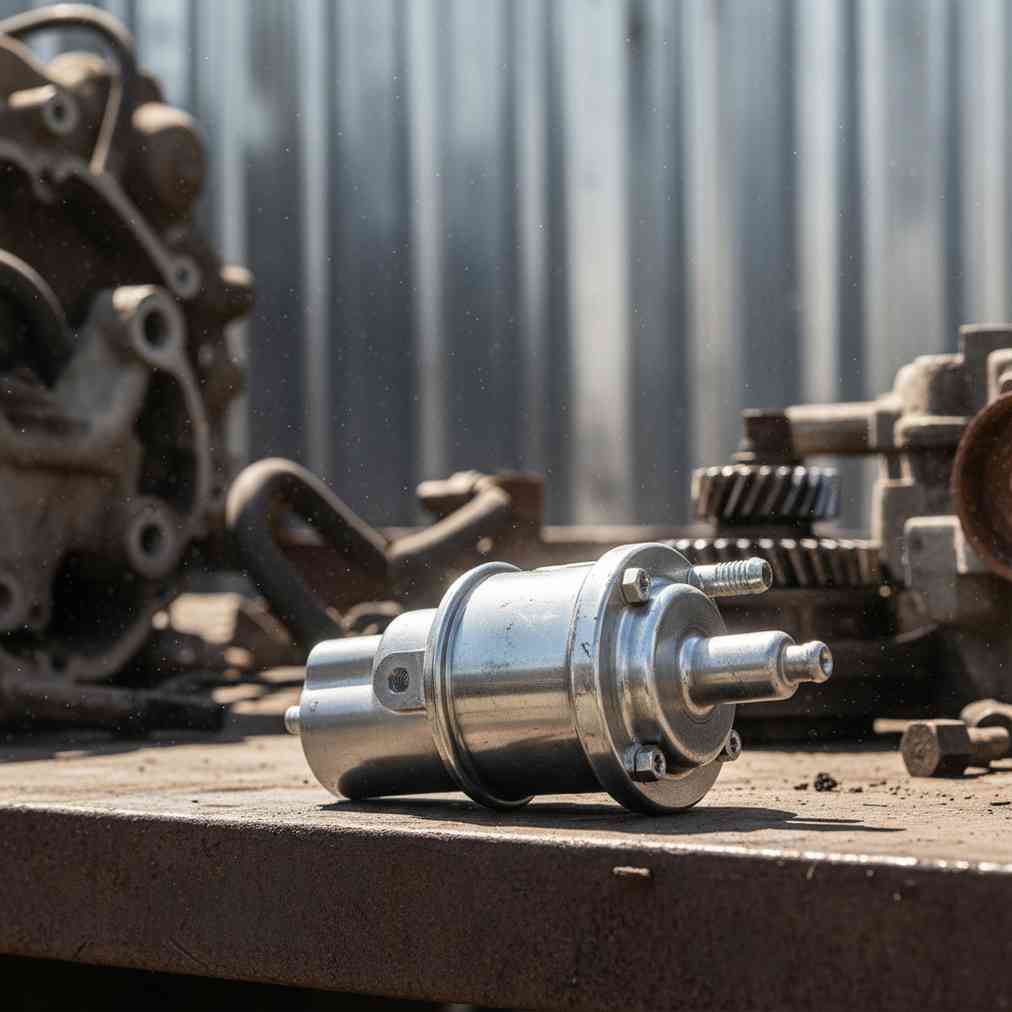What Are Used Fuel Pumps and Should You Buy One from a Junkyard?
When your car’s fuel pump fails, the repair bill can be substantial. With new fuel pumps costing anywhere from $100 to $600 or more, many vehicle owners consider purchasing used fuel pumps from junkyards as a cost-effective alternative. But is this decision worth the potential risks?
Fuel pumps are critical components that deliver fuel at precise pressures from the tank to the engine. Modern electric fuel pumps, including commonly used in-tank pumps, wear out over time due to heat, debris, and electrical failures. Understanding whether a used fuel pump is right for your situation requires careful consideration of costs, risks, and your vehicle’s specific needs.
Cost Analysis: New vs Used Fuel Pumps
The primary attraction of buying used fuel pumps from junkyards is the significant cost savings. Used fuel pumps typically cost 30-60% less than their new counterparts, representing substantial savings for budget-conscious car owners.
| Fuel Pump Type | New Pump Cost | Used Pump Cost | Potential Savings |
|---|---|---|---|
| Standard Electric Pump | $100 – $300 | $30 – $70 | 30-60% |
| In-Tank Assembly | $200 – $600+ | $60 – $180 | 40-70% |
| High-Performance Pump | $300 – $800+ | $90 – $240 | 50-70% |
However, these savings must be weighed against the total cost of replacement, which can range from $400 to $1,200 including labor. If a used pump fails prematurely, you may end up paying for installation twice.
Key Risks and Considerations
Before purchasing a used fuel pump, it’s essential to understand the significant risks involved. Unlike other used auto parts that may have visible wear indicators, fuel pumps hide their condition internally.
Unknown Service History
The biggest concern with junkyard fuel pumps is their unknown history. These components come from scrapped vehicles, and their previous maintenance, mileage, and operating conditions are often a mystery. Expert analysis suggests that this uncertainty makes predicting remaining lifespan nearly impossible.
Limited or No Warranty Coverage
New fuel pumps typically come with warranties of 1-2 years, while used parts often have very limited warranties of only 30-90 days, if any at all. This shortened coverage period leaves you vulnerable to costly replacements if the pump fails shortly after installation.
Risk of Premature Failure
Used fuel pumps may fail within months of installation, potentially leaving you stranded or causing engine damage due to improper fuel delivery. This risk is particularly high with in-tank fuel pump assemblies, which can be susceptible to contamination from rainwater or debris during salvage operations.
When Used Fuel Pumps Make Sense
Despite the risks, there are specific situations where purchasing a used fuel pump from a salvage yard may be justified:
- Older vehicles with discontinued parts – For vintage cars where new pumps are no longer manufactured
- Budget-critical situations – When immediate transportation is needed and funds are extremely limited
- Short-term vehicle ownership – When planning to replace the vehicle soon
- Parts availability from reputable yards – Salvage yards that offer warranties and have good reputations
Testing and Inspecting Used Fuel Pumps
If you decide to purchase a used fuel pump, thorough testing is crucial. While it’s impossible to predict remaining lifespan, you can identify obvious failures before installation.
Visual Inspection Checklist
- Connectors – Check for melted wires, corrosion, or bent pins
- Inlet/Outlet Ports – Ensure fittings are intact and free from damage
- Pump Body – Look for corrosion, pitting, cracks, or dents
- Strainers/Filters – Inspect for signs of dirt or rust contamination
- Housing Integrity – Any signs of fuel leaks indicate potential failure
Electrical Testing with Multimeter
A multimeter is essential for testing a fuel pump’s electrical health:
- Resistance Test – Measure resistance across the pump motor’s power and ground terminals
- Continuity Test – Check for shorts to ground, which indicate pump failure
- Voltage Test – Verify proper voltage delivery at the connector
Fuel Pump Lifespan and Reliability
Understanding fuel pump longevity helps put the used vs. new decision in perspective. Most new fuel pumps are designed to last at least 100,000 miles or more, with many intended to last the vehicle’s lifetime.
The general consensus among automotive professionals is that fuel pump longevity varies significantly based on fuel quality, maintenance practices, and driving conditions. While new pumps offer predictable performance, used pumps represent a gamble with unknown variables.
For context, discussions among classic car enthusiasts reveal that even new-old-stock (NOS) fuel pumps can have reliability concerns after extended storage, emphasizing the importance of current manufacturing and quality control.
Expert Opinions and Professional Advice
Automotive professionals generally lean toward recommending new fuel pumps due to the critical nature of this component. Forum discussions among experienced mechanics consistently highlight several key points:
- Labor costs dominate – The expense of installing a fuel pump twice often exceeds the savings from buying used
- Reliability is paramount – Fuel system failures can cause dangerous situations and expensive secondary damage
- Electric motor concerns – Many experts advise against buying any part with an electric motor from junkyards
- Peace of mind value – The warranty and reliability of new parts often justify the additional cost
Avoiding Counterfeit and Low-Quality Pumps
The rise of online marketplaces has increased both availability and risk when purchasing fuel pumps. Research on buying fuel pumps online reveals significant concerns about counterfeit parts, especially for premium brands like Bosch and Denso.
When considering used pumps, whether from physical junkyards or online sources, vigilance against counterfeit products is essential. Stick to reputable salvage yards that can verify part authenticity and provide some form of guarantee.
Alternative Considerations
Before committing to either a new or used fuel pump, consider these alternatives that might better serve your needs:
Remanufactured Fuel Pumps
Remanufactured pumps offer a middle ground between new and used, typically providing better warranties than used parts while costing less than new OEM components. These pumps have been professionally rebuilt to meet or exceed original specifications.
High-Quality Aftermarket Options
Modern aftermarket fuel pumps from reputable manufacturers often provide excellent value, combining competitive pricing with solid warranties. These may be preferable to used OEM pumps in many situations.
Making the Right Decision for Your Situation
The decision to buy a used fuel pump ultimately depends on your specific circumstances, risk tolerance, and budget constraints. Consider these factors carefully:
| Situation | Recommendation | Reasoning |
|---|---|---|
| Daily driver vehicle | Buy new or remanufactured | Reliability is critical for transportation |
| Classic/vintage car | Consider used if NOS unavailable | Limited availability of new parts |
| High-mileage vehicle (>200k miles) | Used may be acceptable | Vehicle life expectancy considerations |
| Budget emergency repair | Used with thorough testing | Immediate transportation needs |
Current Market Trends and Future Outlook
The automotive parts market continues to evolve, with several trends affecting the used fuel pump landscape:
- Increased complexity – Modern vehicles feature more integrated fuel pump modules, increasing replacement complexity and cost
- Electric vehicle growth – While EVs don’t need fuel pumps, traditional vehicle parts may become more scarce
- Online marketplace expansion – Greater availability but also increased risk of counterfeit parts
- Improved salvage yard practices – Better warranty programs and quality control at reputable yards
Conclusion: Weighing Costs Against Risks
While used fuel pumps from junkyards can offer significant cost savings of 30-60%, they come with substantial risks including unknown service history, limited warranties, and potential for premature failure. The decision should be based on your specific situation, with daily drivers generally benefiting from new or remanufactured pumps, while older vehicles or emergency situations might justify the used pump gamble.
If you choose to buy used, purchase from reputable auto recyclers that offer warranties, and always perform thorough visual and electrical testing before installation. Remember that the labor cost of fuel pump replacement often exceeds the part cost, making reliability the paramount concern in most situations.
For more guidance on automotive repairs and finding quality used parts, consider consulting with experienced mechanics or trusted automotive forums where professionals share real-world experiences with various repair strategies.





Leave a Reply
You must be logged in to post a comment.